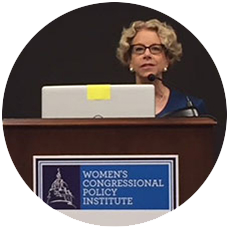 OLPPE was originally established in 1999 as the Office of Legislative and Public Liaison. The office was renamed in 2003 to the Office of Legislation and Public Policy and revised to its current name in 2021.
OLPPE was originally established in 1999 as the Office of Legislative and Public Liaison. The office was renamed in 2003 to the Office of Legislation and Public Policy and revised to its current name in 2021.
The office supports a variety of institute functions related to legislation and federal advisory committees, public liaison, partnerships, controlled correspondence, and other special projects, including ethical conduct of employees.
OLPPE includes the following branches:
- Committee Management Branch, Laura Berkson, Point of Contact
- Ethics Branch, Theodore Dougenik, Chief
- Legislation and Public Policy Branch, Natasha Williams, Chief
Brief descriptions of OLPPE activities within these areas appear within the following sections.
Legislation, Federal Advisory Committees, and Public Policy
- Advises the NICHD director and staff on matters relating to public policy that come from Congress, the Executive Branch, and advocacy groups.
- Monitors, analyzes, and reports on public policy activities relevant to NICHD and NIH.
- Acts as a resource for the NICHD Office of the Director and staff in providing information and describing research activities to Congress.
- Develops and issues reports and briefing materials on the institute's research activities, programs, and policies for use in hearings, briefings, and meetings.
- Serves as the point of contact for the Office of Legislative Policy and Analysis within the NIH Office of the Director.
- Includes the Committee Management Branch (formerly the Office of Committee Management), which provides specialized management expertise and skill related to federal advisory committees, the Federal Advisory Committee Act (FACA), and its requirements for NICHD and other components of the National Institutes of Health and the U.S. Department of Health and Human Services.
- For more information:
- NICHD Budget and Appropriations includes Congressional justifications, significant item responses, testimony presented before Congress, and a link to the NICHD grants map.
- NICHD Legislative History outlines relevant laws that authorized or affected NICHD programs or research activities.
- NIH Office of Budget has information on the NIH budget, Congressional justifications and appropriations, and testimony presented by the NIH director.
- NIH Office of Legislative Policy and Analysis serves as the initial point of contact for NIH's interactions with Congress and the Office of the Assistant Secretary for Legislation within the Department of Health and Human Services.
Public Liaison
- Coordinates responses to inquiries and requests from outside organizations and constituency groups.
- Communicates with outside research advocacy groups on a wide variety of research-related issues, including the impact of legislative language on the institute's activities.
- Conveys to outside organizations opportunities for public input and identifies new avenues for public involvement with the institute.
- Serves as the institute's point of contact for the Friends of NICHD coalition.
- For more information: NIH Office of Legislative Policy and Analysis
Public-Private Partnerships
- Serves as the point of contact for inquiries and initial discussions on possible partnerships.
- Provides assistance and input on the institute's public-private partnerships.
- Develops partnership agreements for the institute.
- For more information: Partnering with the NICHD
Controlled Correspondence and Other Special Projects
- Works with the NICHD director, deputy director, and program staff to manages and responds to the Institute's official correspondence assigned by the Executive Secretariat of the NIH.
- Implements special projects on an as-needed basis, as directed by the director or deputy director, such as representing NICHD on the trans-NIH Clinical Trials Awareness Working Group.
- Houses the NICHD Ethics Branch, which advises NICHD staff and manages requirements for employee ethical conduct within the context of outside activities, financial disclosures, conflicts of interest, political activity, and other areas. For more information, visit the NIH Ethics Program website.
- For more information: NIH Executive Secretariat
 BACK TO TOP
BACK TO TOP